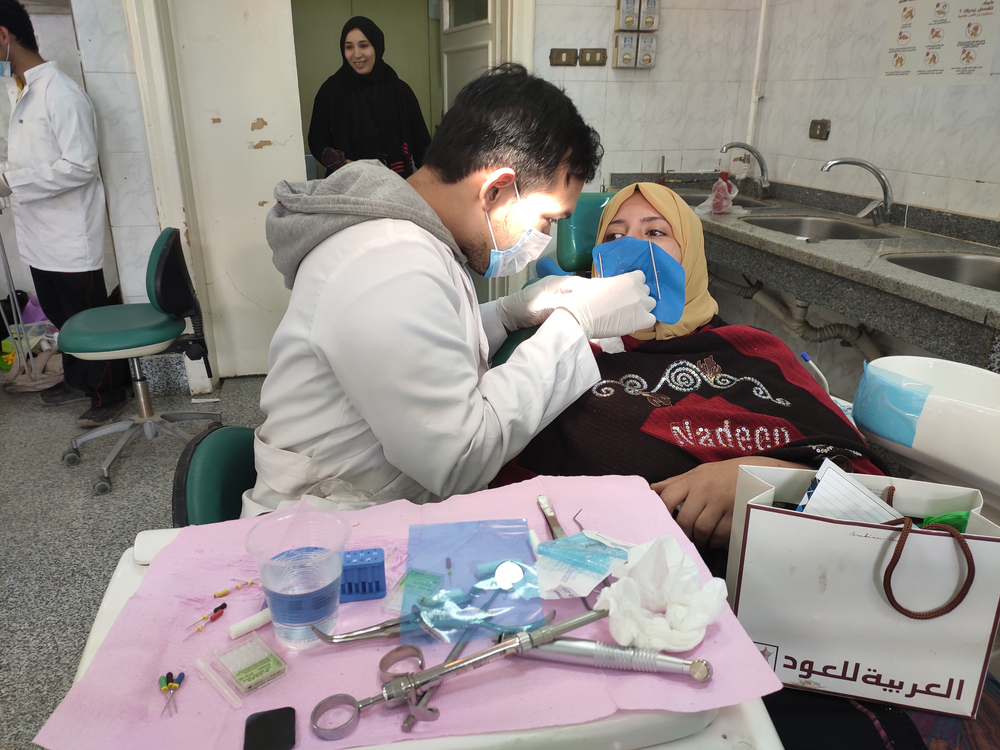According to the WHO, oral diseases are among the most common noncommunicable diseases in the South-East Asia Region. In response to the widespread oral disease in East Asia, WHO has launched a plan for oral health in South-East Asia for 2022–2030.
This plan aims to address the state of the mouth, teeth, and orofacial structures, enabling individuals to perform basic and essential functions such as eating, smiling, and speaking, as oral health affects self-confidence and the ability to socialize without pain or embarrassment.
Good oral hygiene practices can prevent cavities, gum disease, and more serious diseases, as well as costly procedures, and keep your smile bright. Effective tips for keeping teeth and gums healthy and strong include:
- Brushing teeth twice a day: It’s important to brush teeth once in the morning and once at night before going to bed. Brushing should reach all oral cavities, and the toothbrush should be moved in a circular and gentle way.
- Flossing: Flossing should be done at least once a day to remove plaque and bacteria from the part between teeth, reducing the formation of cavities and gum disease.
- Using fluoride toothpaste: Fluoride toothpaste can remineralize teeth, help prevent tooth decay and cavities, and achieve good oral health hygiene.
- Brushing the tongue: Brushing the tongue with a toothbrush or a tongue scraper is important as the tongue holds bacteria like a sponge.
- Visiting the dentist twice a year: Regular dental exams and cleaning are essential for good oral health. People who are prone to cavities, gum disease, or other oral health problems should visit the dentist more than twice a year.
- Eating healthy food: Reducing the consumption of sugary and acidic foods and increasing the consumption of vegetables is recommended, as sugars convert into acids that may erode the enamel of the teeth and lead to cavities.
- Avoiding smoking: Smoking is one of the leading causes of gum disease and even oral cancer, so it’s best to avoid smoking and tobacco products to achieve good oral health.
- Using antibacterial mouthwash: Antibacterial mouthwash can reduce the amount of acid in the mouth, remove harmful bacteria, and help remineralize teeth.
There are many factors that can negatively affect oral health and lead to dental diseases, such as gingivitis (inflammation in the gum) or even more serious conditions such as periodontitis (the advanced stage of gum disease). These factors include poor brushing routine, smoking, systemic diseases such as diabetes, pregnancy or hormonal changes in women, infectious diseases such as HIV, acid reflux disease, genetics or family history, and some medications that cause dry mouth or decrease the saliva in the mouth.
A study published by the National Library of Medicine explains how oral disease may affect the course and the pathogenesis of some systemic diseases, such as cardiovascular disease, diabetes mellitus, bad pregnancy outcome, chronic kidney disease, obesity, metabolic syndrome, rheumatoid arthritis, and some respiratory diseases such as pneumonia.
If you have one or more of the symptoms of poor dental hygiene and oral diseases, such as ulcers or tender areas that take more than one week to heal, swelling of the jaw, chronic halitosis (bad mouth breath), bleeding from the gum, sudden sensitivity to changes in mouth temperature (hot or cold beverage), pain during chewing or biting, broken or loose teeth, chronic toothache, or jaw swelling, especially if accompanied by pain in the mouth, you should arrange an appointment with your dentist.











